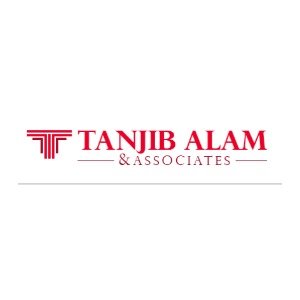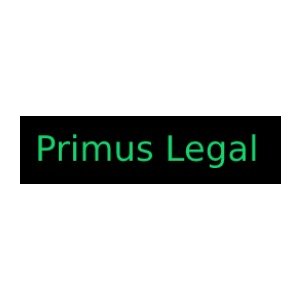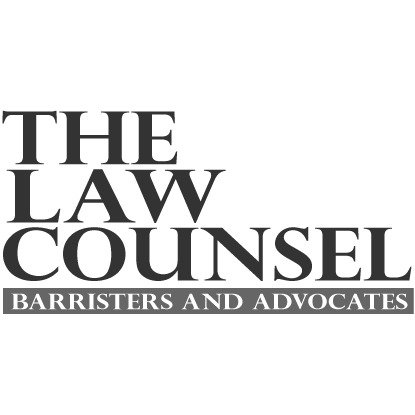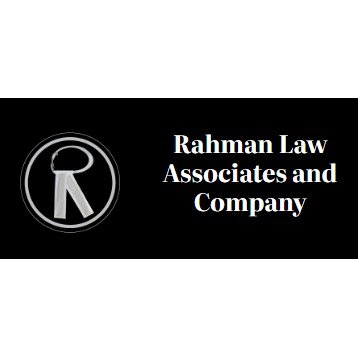Best Mining Law Lawyers in Bangladesh
Share your needs with us, get contacted by law firms.
Free. Takes 2 min.
Or refine your search by selecting a city:
List of the best lawyers in Bangladesh
About Mining Law in Bangladesh
Mining Law in Bangladesh is a specialized area of law that governs the exploration, extraction, and management of natural mineral resources within the country. Historically, Bangladesh has rich deposits of coal, natural gas, and other minerals. The mining sector is regulated to ensure responsible resource management, environmental protection, and fair benefit sharing for all parties involved. The government plays a central role through licensing, oversight, and implementation of mining regulations. Effective legal frameworks aim to balance economic growth with the sustainable use of resources and the rights of local communities.
Why You May Need a Lawyer
Engaging with the mining sector in Bangladesh often involves navigating complex legal requirements. Various scenarios may necessitate legal advice:
- Securing exploration or extraction licenses for minerals or petroleum
- Negotiating joint venture agreements with local or international partners
- Resolving disputes related to land acquisition or compensation for affected communities
- Ensuring compliance with environmental protection and worker safety laws
- Handling regulatory issues, penalties, or investigations by authorities
- Managing contractual obligations with government agencies and private partners
Legal assistance can help individuals and companies protect their investments, ensure compliance, and prevent costly litigation or project delays.
Local Laws Overview
Mining activities in Bangladesh are governed mainly by the Mines and Minerals Rules 2012 and related statutes. The following are key aspects of mining law in Bangladesh:
- Regulation and Licensing: Mining operations must obtain proper licenses and permits from the Ministry of Power, Energy and Mineral Resources or related authorities. These are usually granted subject to specific terms and conditions.
- Land Acquisition: The government controls substantial land needed for mining. Acquisition for mining purposes can be complex, involving compensation to displaced people and adherence to national land policy.
- Environmental Protection: Mining entities must conduct Environmental Impact Assessments and comply with the Environment Conservation Act 1995 and Environmental Conservation Rules 1997.
- Mineral Royalties and Taxes: Mining companies are subject to royalties, taxes, and various fees as stipulated in the laws and their license agreements.
- Foreign Investment: Foreign investors are allowed, but subject to specific conditions related to ownership, management, and profit repatriation.
- Labour and Safety: Operators must comply with worker safety laws, provide proper wages, and ensure health and safety standards on site.
- Dispute Resolution: Disputes may be settled through negotiation, arbitration, or litigation depending on contract terms and legal requirements.
Frequently Asked Questions
What is the primary law governing mining in Bangladesh?
The main laws are the Mines Act 1923, the Mines and Minerals Rules 2012, and various regulations issued by the Ministry of Power, Energy and Mineral Resources.
Who grants mining licenses in Bangladesh?
Mining licenses and permits are issued by the Ministry of Power, Energy and Mineral Resources, typically through its Bureau of Mineral Development or related bodies.
Is foreign investment allowed in the mining sector?
Yes, foreign investment is permitted with the approval of relevant authorities and subject to compliance with local laws and regulations.
How is environmental protection enforced in mining?
All mining projects must complete Environmental Impact Assessments and obtain clearance certificates before operations begin. Ongoing reporting and compliance with environmental regulations are also mandatory.
What taxes or royalties apply to mining?
Mining companies must pay government royalties, licensing fees, and applicable taxes. The rates and terms are specified in the relevant mining agreements and laws.
Can mining operations lead to land disputes?
Yes, land acquisition for mining may result in disputes with property owners or local communities. Legal processes exist for compensation and resettlement.
What are the penalties for illegal mining?
Illegal mining may lead to prosecution, fines, cancellation of licenses, and confiscation of equipment or products as stipulated by law.
Are there specific labor laws for mining workers?
Yes, mining companies must adhere to labor laws including safety, working hours, fair wages, and employee welfare, as provided under the Labour Act 2006 and relevant mining regulations.
How are mining disputes resolved?
Disputes may be resolved through mediation, arbitration, or through the courts, depending on the agreement terms and the nature of the issue.
Can individuals own mineral rights?
No, all minerals belong to the state. Individuals or companies must obtain rights through government-issued licenses or leases.
Additional Resources
If you need more information about Mining Law in Bangladesh, consider contacting these organizations and resources:
- Ministry of Power, Energy and Mineral Resources
- Bureau of Mineral Development
- Bangladesh Oil, Gas and Mineral Corporation (Petrobangla)
- Bangladesh Environmental Lawyers Association (BELA)
- Department of Environment, Ministry of Environment and Forests
- Bangladesh Investment Development Authority (BIDA)
These organizations provide legal texts, guidance, licensing information, and support for individuals and companies involved in the mining sector.
Next Steps
If you believe you need legal assistance concerning Mining Law in Bangladesh, consider taking the following steps:
- Identify your specific legal needs related to mining, such as licensing, contract negotiation, environmental compliance, or dispute resolution.
- Gather all relevant documents, permits, contracts, and correspondence related to your case.
- Contact a qualified lawyer who specializes in mining law or natural resources law in Bangladesh.
- Schedule a consultation to discuss your situation, review your options, and understand the timelines and costs involved.
- Stay informed about your rights and obligations by reviewing information provided by relevant government agencies.
Early legal advice can help you avoid common pitfalls, ensure regulatory compliance, and protect your interests in this highly regulated sector.
Lawzana helps you find the best lawyers and law firms in Bangladesh through a curated and pre-screened list of qualified legal professionals. Our platform offers rankings and detailed profiles of attorneys and law firms, allowing you to compare based on practice areas, including Mining Law, experience, and client feedback.
Each profile includes a description of the firm's areas of practice, client reviews, team members and partners, year of establishment, spoken languages, office locations, contact information, social media presence, and any published articles or resources. Most firms on our platform speak English and are experienced in both local and international legal matters.
Get a quote from top-rated law firms in Bangladesh — quickly, securely, and without unnecessary hassle.
Disclaimer:
The information provided on this page is for general informational purposes only and does not constitute legal advice. While we strive to ensure the accuracy and relevance of the content, legal information may change over time, and interpretations of the law can vary. You should always consult with a qualified legal professional for advice specific to your situation.
We disclaim all liability for actions taken or not taken based on the content of this page. If you believe any information is incorrect or outdated, please contact us, and we will review and update it where appropriate.
Browse mining law law firms by city in Bangladesh
Refine your search by selecting a city.

















